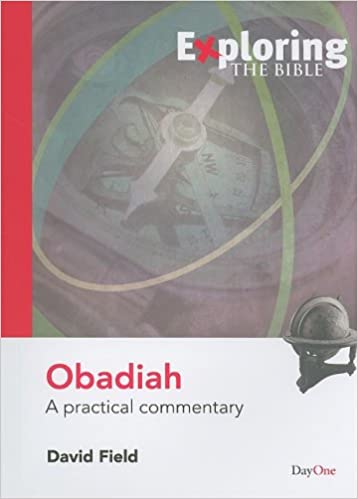When the Babylonians destroyed Jerusalem in 587 BC, Edom, despite its close family relationship with Israel, sided with the enemy. Obadiah, the shortest book in the Old Testament, condemns the Edomites, and prophesies their downfall.
It then looks forward to the restoration of Judah and the ultimate fulfilment of God’s promises in Christ. David Field explains all this in exhaustive detail, with extensive New Testament application.
On one point of detail I remain unconvinced, namely, that the Herods were Edomites. In the first century BC ‘Idumaea’ meant the whole southern part of Palestine. The family names are Greek or Latin, and it seems much more likely that the family was of Greek stock, or as Nikos Kokkinos argues in The Herodian Dynasty (Sheffield Academic Press 1998), ‘Hellenized Phoenicians’.
The subtitle calls this a commentary, though I am not sure what ‘practical’ means in this context. On page 14 the author himself calls it a ‘short study guide’, which is about right except for the word ‘short’ – 128 pages to deal with a prophecy of just 21 verses means that he has gone well beyond commenting on the text. And that is the problem with the book. It is too long for a working pastor with limited time on his hands, and too learned for the average Christian.
There are 62 study questions, many of them with multiple parts. But what is anyone outside academia going to make, for example, of a question that invites readers to describe the story of God’s work of salvation in terms of The seven basic plots by Christopher Booker (Continuum 2004)? In truth, this is one theologian writing for other theologians and their students. These are the people who will find it most useful.




